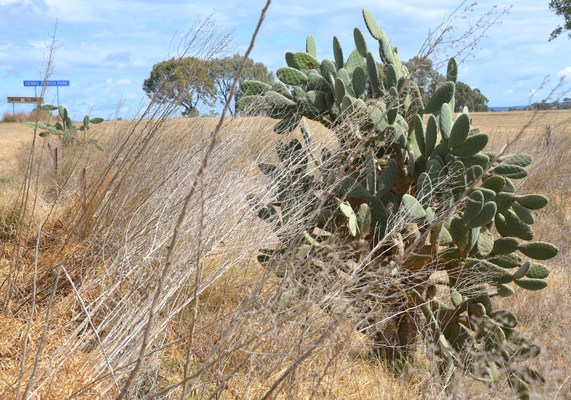By Jeremy Sollars
The Southern Downs Regional Council has so far carried out more than 330 property inspections relating to its controversial new Invasive Pest Control Scheme (IPCS).
The scheme applies predominantly to rural properties, and has drawn the ire of many landowners, who may be hit with a ‘supplementary rates notice’ if they fail to eradicate pest plants and feral animals on their holdings.
The council has said the estimated cost of carrying out the scheme is $15.4 million.
Some have dismissed the initiative as a cash-grab, and have demanded it either be scrapped or introduced on a trial basis in its first year without the threat of financial penalties.
Many have also raised concerns about the practicality of the scheme and the ability for council officers to inspect the thousands of individual land parcels which come under it.
The IPCS came into effect on 1 July 2017 as part of the new council budget, and a council spokeswoman said to date 3840 ‘Control Works forms’ have been submitted as required by landowners.
The forms must outline how a property owner intends to deal with pest species in the coming year.
Landowners who have not submitted their forms are being sent ‘first and final’ reminder letters by the council, but the Free Times understands some of these warning letters have been sent to property owners who submitted their form weeks previously.
“There have been 3840 Invasive Pest Control Works forms received, and there have been 337 site visits requested to date,” the council spokeswoman told the Free Times this week.
“The council is not planning any changes to the scheme.”
Another bone of contention for rural landowners is the measures the council is – or as some claim isn’t – taking to control pests on its own land.
As previously reported in the Free Times there are noticeable infestations of pest plants such as tree pear on box thorn on council lands such as near the Warwick Wastewater Treatment Plant and in council-controlled road reserves across the region.
The council has repeatedly claimed to be taking appropriate measures on its own holding, with the spokesperson this week also down-playing suggestions of a rabbit infestation at the Warwick Saleyards.
Regular users of the Saleyards have told the Free Times rabbits are a common sight at the facility, but the council spokesperson said its officers were “not aware of established rabbit warrens at the Warwick Saleyards complex that would accommodate breeding populations of rabbits”.
“Council officers are aware that the odd rabbit is seen from time to time at the Saleyards,” the spokeswoman said.
“As with rabbit control on private lands, opportunistic control in these cases is encouraged, but established warrens that provide rabbits the opportunity to breed are being targeted through the IPCS.”
Most regional and rural councils around Australia have programs aimed at controlling or limiting the spread of pest plants and animals, but not all of them take a ‘big stick’ approach to enforcement.
The Melton City Council in Victoria west of Melbourne, for example, offers a rebate to landowners who do the right thing.
Melton’s ‘Environmental Enhancement Rate Rebate Policy’ means eligible owners of a property larger than two hectares will be able to receive a rebate on their rates if they meet the requirements of the policy, which covers soil erosion control as well as noxious weeds and feral animals.
The policy states that “(Melton) Council does not take a zero tolerance approach to weed control and property management”.
“A landholder can ask for unforeseen issues to be taken into account,” the policy states.
“The management principles for noxious and environmental weed control are to:
* Contain the spread of weeds by stopping flowering and seed set;
* Reduce the level of infestation and
* Prevent reinfestation
How the Melton City Council Environmental Enhancement Rate Rebate Policy works
Each year council will send eligible property owners a Proposed Works form and a copy of the Environment Enhancement Policy. The forms are sent in February to March of each year. You need to complete and return the Proposed Works form to council by 31 March to qualify for the rebate. If you do not complete the form and return it to council, the rebate will be withdrawn. The form should detail what environmental improvement works you are planning for your property including the control of weeds to prevent seeds setting.
Advice on completing the form or planning your property management is available from council’s Land Management officers who can meet you on your property. Land Management officers can advise on weed control, pest animal control, soil erosion and identification of native vegetation. To arrange a visit, contact council’s Environmental Services on 9747 7200.
Land Management officers approve your Proposed Works form or contact you to discuss any concerns. A copy of your approved Proposed Works form is then returned to you.
When you have completed the planned work, your property will be inspected by the Land Management officer who will approve that the work has been completed. Work on your property must be completed by 30 September each year. Inspections will take place after 30 September.
Grants to help with land management
Land Management officers can advise you on grants that are currently available to help with land management. Other income may be available through accepting “offsets” or putting a covenant on your property.
Source – Melton City Council website








